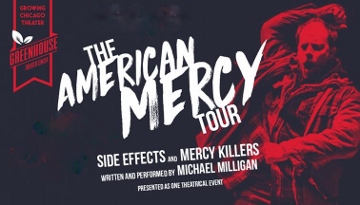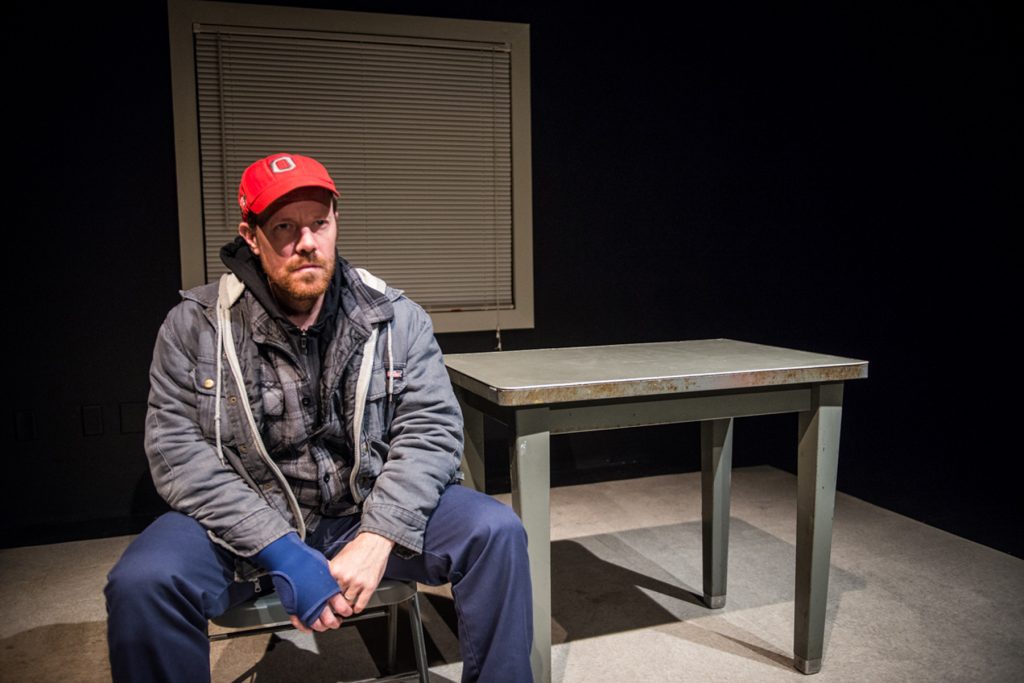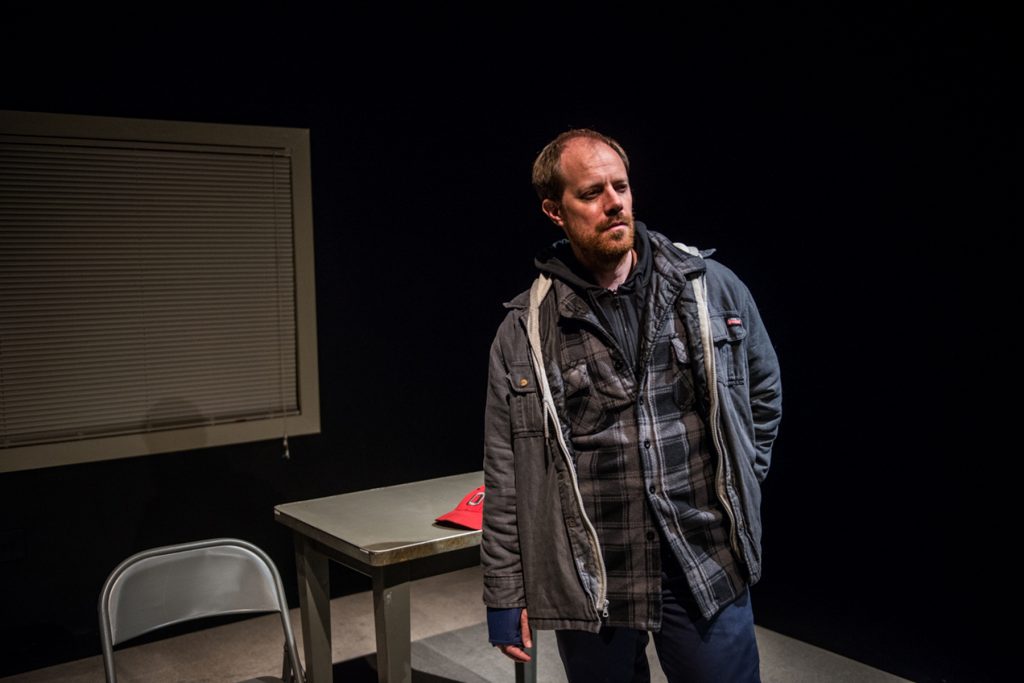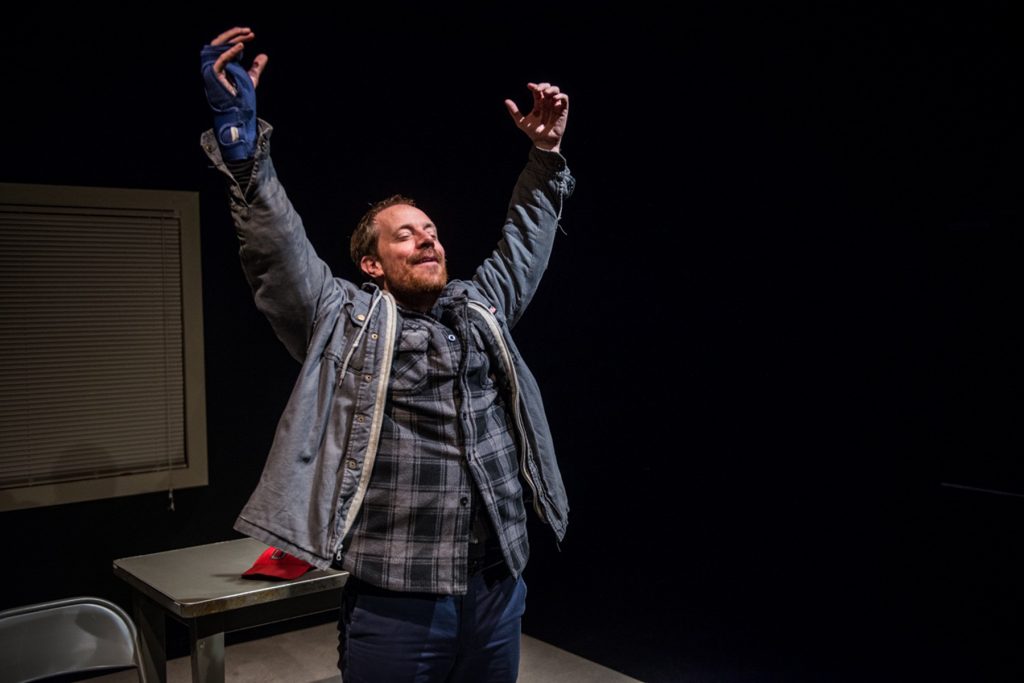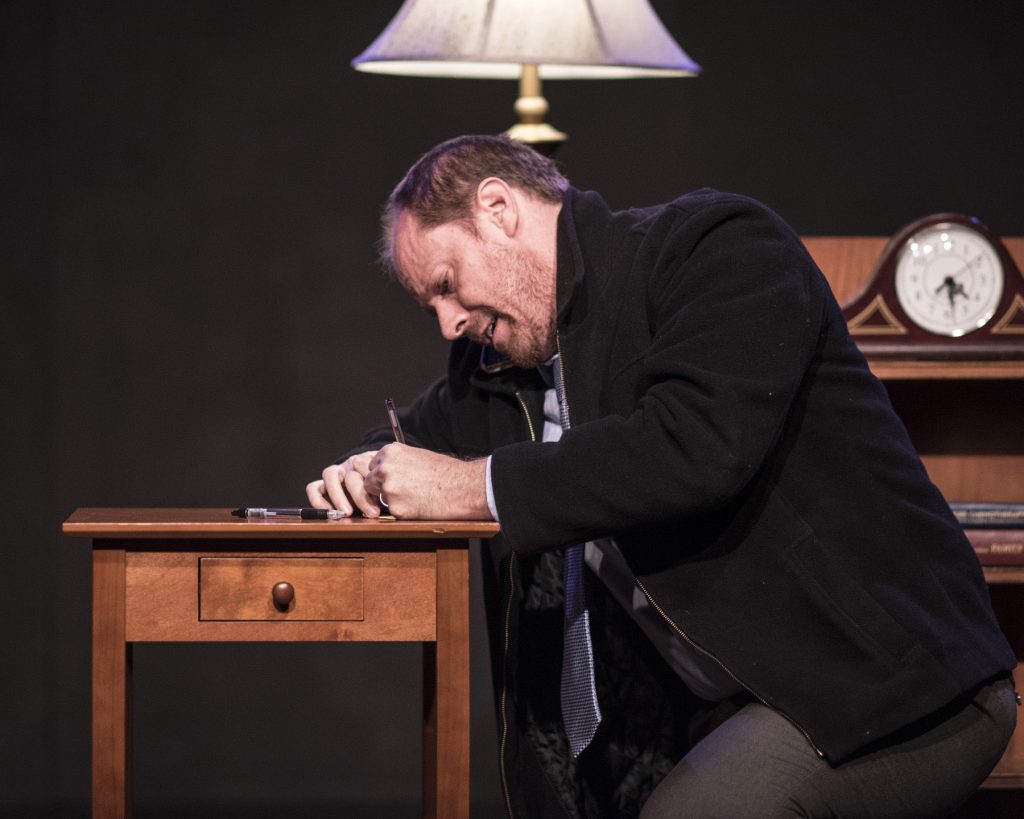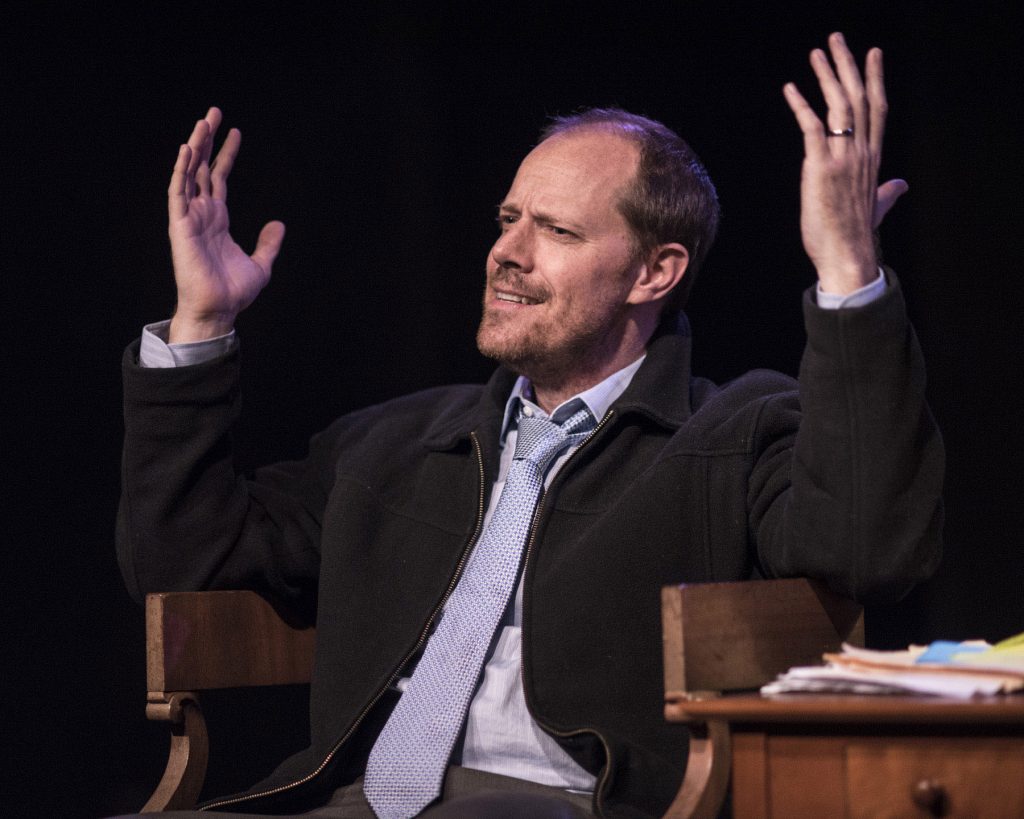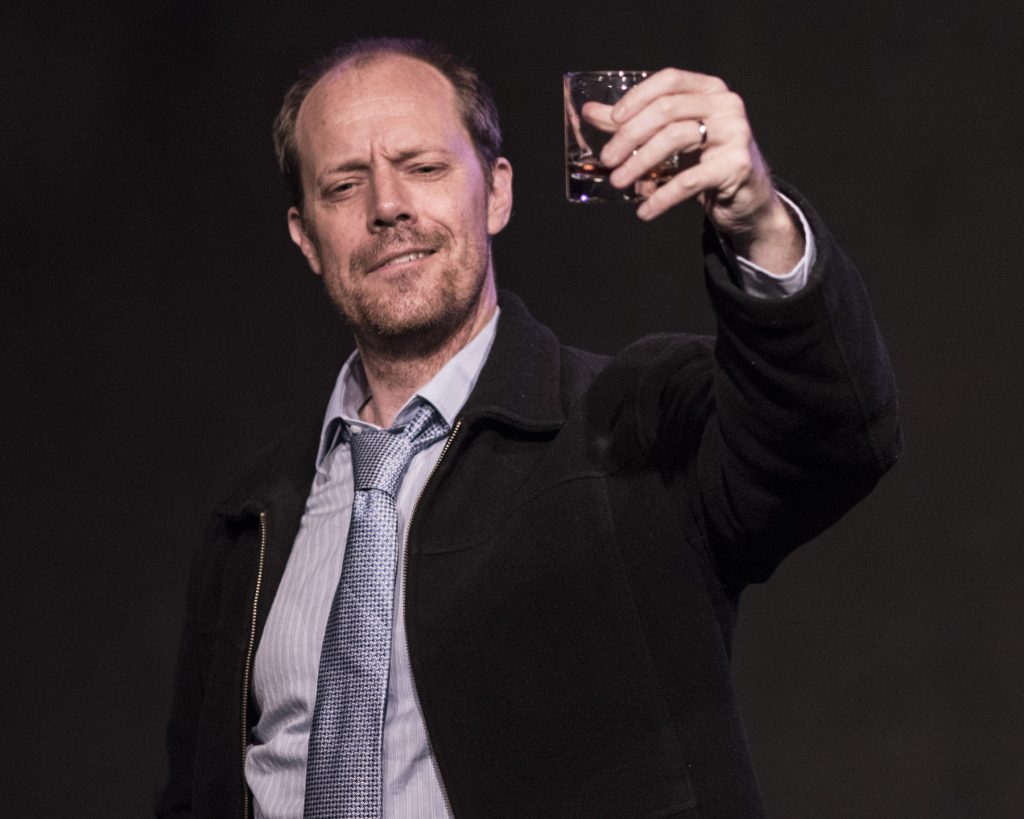WHEN MEDICINE GETS SICK
“First, do no harm.”
A no-brainer, this unarguable warning in the Hippocratic Oath apparently defies and defines the medical profession in 2017. Mercy Killings and Side Effects, well-targeted protest portraits written and performed by Michael Milligan, drive home its disillusionments, conflicts of interest, contradictions, betrayals and broken promises—both for patients and doctors.
Determinedly directed by Tom Oppenheim, Milligan’s two one-acts combine in The American Mercy Tour, now playing Greenhouse Theater Center in a co-presentation with Poor Box Theater and D.C.’s Taffety Punk Theatre Company, to indict—from provider to patient—the whole damn system.
Each play examines inequities from polarized perspectives. A case history in medical murder-suicide, Mercy Killers takes place in the interrogation room of a police station in 2009, the locale being the Appalachian borderlands of southeastern Ohio. Brought in to explain a “mercy killing” act of euthanasia, Joe is a blue-collar auto repairman in wrenching anguish from his recent human sacrifice (and from the Taser-ing he got during his arrest). Milligan depicts this choked-up, guilt-ridden confessional as Joe’s seminal breakdown over the intransigence of the healthcare system.
Diagnosed with breast cancer, Joe’s wife Jane was an organic-minded liberal in contrast to Joe’s Limbaugh-loving Tea Partyer. To get her help, Joe has mortgaged his home, resorted to bake sales, exhausted his insurance payouts, and lost any chance at Medicaid coverage because they both earn too much to qualify. Allergic to penicillin and so unable to resist staph infections, Jane endures expensive and useless chemo treatments. The cascading calamities of his debt and her death completely confound this simple-minded, salt-of-the-earth survivor.
Spiraling into desperation and driven to the worst last resort, Joe has “fallen through the cracks” of a convoluted sickness industry. His anger is taking him into future Trump territory. For Joe, battling over bills and jumping through hoops becomes its own malady. Milligan’s impassioned testimony stands in for much more misery in millions of impatient in-patients.
Detailing the crisis from the opposite vantage, Side Effects is another cri de coeur against corporate “care.” But in this play the focus is on the frustrations that lead many doctors to drugs, mental illness, quitting the profession or, increasingly, suicide. Here a family-practice doctor opens up to lawyer Paul Blackburn, a childhood chum, in a suburb of Columbus, Ohio. Suffering from atrial fibrillation and, less specifically, a “moral distress” that brings him to the brink of burnout, Milligan’s 45-year-old Dr. William MacQueen lashes out at his “doctor’s dilemmas.”
Sick of reducing patients to piece/paper work at the mandated rate of 30 a day to please the hospital and pay off his medical-school debts, MacQueen explodes with laments over sick folks he couldn’t help and actually hurt—and the malpractice (a word not used here) suits that follow. Mired in “avoidance and denial,” this son of an esteemed physician wishes his career could mirror his dad’s Norman Rockwell-like “bedside manners.” His father worked when medicine was an art, not a business, and doctors were paid with bartered eggs, not “pre-approvals” and “co-payments” and prescribed protocols that constrain and corrupt treatment. Measuring medical care through the overtreatment of unnecessary tests and duplicated documents in fact distorts the entire enterprise. As Oscar Wilde said, “Nowadays we know the price of everything and the value of nothing.”
More victims than patients, MacQueen’s failure stories haunt him: Hastily made diagnoses missed pre-existing conditions with fatal results. He fears he may have to sell his practice to the hospital, becoming the middleman in his own elimination. A hopeful healer who feels utterly helpless, exhausted by fruitless friction with “claims analysts, hospital administrators, and entitlement bureaucrats,” this broken caregiver is based on interviews Milligan did while performing the stand-alone Mercy Killers. It rounds out the accusations, diagnosing the same disease from two sides. Milligan necessarily offers no prescriptions, though, by implication, Canada’s “single payer” system certainly sounds promising.
Milligan’s range is remarkable as he switches from downhome-decent, temper-losing Joe to an equally defiant, self-imploding William. As drama, Mercy Killing carries more urgency and immediacy than the overlong Side Effects; the latter is overloaded with evidence and prosecutes its points to the point of expository overkill.
But, pitted together into this American Mercy Tour, the 145-minute evening piles on some very positive pain. There’s merit in its prognoses for a failing healing establishment where curing disease seems a sideline to profit incentives, assembly-line treatment, and bottom-line cost-cutting.
“First, do no harm.”
photos by Daylon Walton (Mercy Killers) and Teresa Castracane (Side Effects)
The American Mercy Tour (Side Effects and Mercy Killers)
Greenhouse Theater Center, 2257 N. Lincoln Ave.
Thurs-Sat at 8; Sun at 3
ends on February 12, 2017
for tickets (all pay-what-you-want), call 773.404.7336 or visit Greenhouse
for more shows, visit Theatre in Chicago
